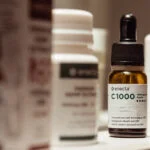Drug & Alcohol Rehab in Bicester
If you’re looking for drug and alcohol rehab in Bicester, you’ve come to the right place!
Here at OK Rehab, we have plenty of resources to help out anyone who’s struggling and who needs help.
Here, we have more information and advice on the general rehab process, as well as a bit more information on what to expect and how to get started!
But before all of that, we want to acknowledge the first step that you’ve taken by even looking at this page.
Admitting that you have a problem to yourself or others is one of the hardest parts of most addiction journeys.
By trying to look at more information and learn about ways that you can heal, you’re already on your way to recovery.
How will drug and alcohol rehab in Bicester help me?

If you’re still considering whether rehab is for you, you might want some more information about why it’s so strongly recommended.
It’s not some magical cure that’s instantly going to make your addiction go away. Unfortunately, addiction is too complex and wide-reaching for that to be possible.
Through drug and alcohol rehab in Bicester, we instead intend to help you manage your addiction in the long term.
One specific example of this is the trauma and/or mental health issues that often either causes or is caused by addiction.
At OK Rehab, we offer free advice from a team of non-judgemental professionals, many of whom are in recovery and understand how hard it can be to change your relationship with addiction.
To find out more, simply reach out to our 24/7, confidential hotline on 0800 326 5559.

Through the mental health treatments of rehab, we’ll (hopefully) give you the skills and coping strategies to move forward.
On a physical level, we can also help to break your dependence on drugs and/or alcohol through the detox stage.
This usually lasts for about 3 weeks and involves your intake slowly being reduced.
Attempting to do this alone is usually ineffective and can sometimes even be dangerous, due to withdrawal symptoms.
These occur at the stage of addiction where dependence has developed and can often be a huge physical barrier to recovery.
In fact, that’s another reason why rehab is effective: it gives you access to a level of care and support that you won’t be able to get anywhere else.
How long should I wait before trying to get help?

The short answer is, you shouldn’t wait at all. Leaving addiction for any length of time will only make recovery harder in the long run.
The physical, mental and social effects of addiction are also much more likely to be permanent if you delay treatment.
More damage could be done to your personal relationships, your health, your job and other parts of your life, that will then be harder to undo.
Recovery isn’t impossible if you’ve been suffering from addiction for a long time. But it will likely be a harder journey, that will require more intensive treatment.
At OK Rehab, we offer free advice from a team of non-judgemental professionals, many of whom are in recovery and understand how hard it can be to change your relationship with addiction.
To find out more, simply reach out to our 24/7, confidential hotline on 0800 326 5559.
What to expect from drug and alcohol rehab in Bicester

Now let’s talk a bit more about the actual process of rehab. As we indicated before, drug and alcohol rehab happens in three stages: detoxification, rehabilitation and aftercare.
We’ve already discussed detoxification, where we’ll attempt to break down your physical dependence on drugs and alcohol.
The next stage is also one we’ve touched on briefly: rehabilitation usually takes the form of mental health treatments and more minor physical treatments.
Examples of the latter include yoga, massages, acupuncture and reflexology. All of these are added in to improve your mental state, so that the rest of the process can work better.
Then there’s aftercare, which is a transitional stage designed to help ease you into your new post-rehab life.
Here you’ll encounter many of the same treatments as the main part of rehab. But this time it will be on a more localised level.
How to start drug and alcohol rehab in Bicester

On a practical, non-emotional level, getting started with drug and alcohol rehab in Bicester is actually pretty simple.
All you need to do is get in touch with an organisation like OK Rehab and we’ll set you on the right path as soon as we can.
If you choose to contact us via the phone or our website, we can give you advice and support.
Some people simply want to know where to go next or what to do, so we have services available that match that.
Through our just aforementioned helpline, we also offer advice to people concerned about someone else.
If that applies to you, please know that you deserve help and support too. If you feel like it’s something you need, we can help you with an intervention too.
At OK Rehab, we offer free advice from a team of non-judgemental professionals, many of whom are in recovery and understand how hard it can be to change your relationship with addiction.
To find out more about rehab in Bicester, simply reach out to our 24/7, confidential hotline on 0800 326 5559.

If you’d like something more specific than just general advice, we can also create a treatment plan specifically tailored to your needs.
This level of individualisation is very important, especially as addiction can change so much case to case.
To pin down all the facts about what exactly you need, we usually complete a formal assessment at this stage. Some of the questions in such an assessment include:
- What are you addicted to? We ask this because different substances can often affect people in vastly different ways, can be addictive at different levels and can have different effects/withdrawal symptoms.
- How long have you been suffering from addiction for? We ask this because addiction generally changes and worsens over time.
- Have you told anyone else about your addiction? We ask this to try and establish the level of support you have at home.
- Have you tried to access help, support or treatment before? Your previous treatment experience can also make a big difference to what you need now.
How to deal with the addiction of someone you care about

Addiction can also be really difficult to deal with from the other side. If you suspect that someone you care about might be suffering from addiction, the best thing you can do is talk to them.
This might not earn you the best response at first. In the earlier stages especially, most people are firmly entrenched in denial.
They might even become angry or offended. But if there really is an issue, it’s better to get it out in the open.
Hiding these kinds of things never does any good.
If you’re currently living with any addiction issue, OK Rehab is always here to help you. You can heal – you just need to reach out.
At OK Rehab, we offer free advice from a team of non-judgemental professionals, many of whom are in recovery and understand how hard it can be to change your relationship with addiction.
To find out more about rehab in Bicester, simply reach out to our 24/7, confidential hotline on 0800 326 5559.





